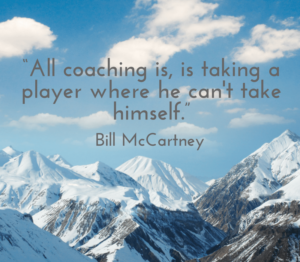《自律養生實踐家之旅375》 斷食教練

許多人出現在我面前,告訴我他們「知道自己應該斷食」,卻「不知道從哪裡開始」。當有人終於開口尋求協助,我總是心生慶幸,因為願意尋求改變的人,已經跨出了第一步。
我心中總是這樣回應他們的請求:「是的,你確實來對地方了。我的經驗,足以讓你熟練這條大多數人從未踏上的路。」
當我們經過充分溝通後,決心要行動的人通常會分成兩種:一種選擇直接進入斷食營,接受環境的引導與洗禮;另一種則從每天少吃一餐開始,循序漸進的適應「一段時間不吃」的節奏。
兩種方式都對,也都可行。只是十多年觀察下來,最後能真正把身體照顧好的人,幾乎都是那些選擇立刻進入營隊、全然投入的人。
這就是動機的分野,把斷食視為「養生方式」的人,傾向採取保守的步調;而那些早已看清人類飲食習慣的問題、願意從根本改變的人,往往在我的鼓勵下直接跨出一大步。
推廣斷食的首要條件,是確認學習者的動機。動機是整個斷食教育體系中最關鍵的價值。沒有動機,免談;動機薄弱,也難有意義。
很多人問我:「難道斷食不是一種養生方式嗎?」
在被營養學與卡路里理論深深影響的時代,我理解這樣的提問。但事實上,斷食並不是一種短期的保健手段,而是一種「與身體合作」的生活態度。
與身體合作,不是一時的挑戰,而是一種日常的相處。
當你熟悉身體的節奏、理解身體的語言,最終會發現,斷食不過是每天與身體共處的一種方式。
有人擔心:「每天都斷食,那不就失去很多享受美食的機會?」
我也是在斷食後,才真正懂得「少即是多」。斷食讓我重新定義了「失」與「得」的關係。
物質的世界讓我們多了貪婪、少了憐憫;美食的誘惑讓我們多了食慾、少了節制。斷食讓我更能享受食物,也更懂得珍惜與食物相遇的每一刻。
我在接近半百之際開始斷食,原本是衰老的起點,卻意外開啟了逆齡之旅。
領悟越深,行動越準確;執行越到位,身體越顯年輕。
那麼,透過斷食,我與食物的距離究竟是拉遠了,還是更近了?答案,或許在於你是否準備好,踏上這趟與身體重逢的旅程。
斷食最佳的夥伴,是台灣的「全作物發酵液」。我不確定其他國度是否也擁有這樣的條件,至少目前,我尚未找到比我們本土材料更適合斷食的糧草。
有了動機,也有了材料,許多關於斷食的擔憂與疑惑,自然消散。
近二十年來,我為斷食教育付出的努力,如今即將邁入新的階段,這是一個該讓更多人覺醒的時刻。
我們稱這些全作物發酵液為「酵素」,這個名稱未必精確,卻是最通俗易懂的稱呼。
銷售斷食,是責任;銷售酵素,是生意。兩者的差別,我看得很清楚。
缺乏動機的人,沒有購買酵素的必要,這是現實,也是殘酷的真相。
我常提醒那些贈送酵素給親友的人:若對方沒有動機,這份「好意」可能適得其反,不僅無助於健康,反而會讓他們誤解酵素的實力。
除了擁有動機,我鼓勵每一位學習者不斷放大與深化那份動機。在學習與實踐之間,持續反觀:為什麼人類會生病?
我的體悟是:斷食不僅是身體層面的嘗試,更是一場心理的修煉。它與睡眠、排泄的節律緊密相連,成為身體自然法則的一部分。
多年以來,當斷食成為生活的一部分,健康與年輕自然隨之而來,對「疾病之所以存在」的理解,也變成與身體合作的收穫。
在深化斷食的路上,我看見自己的自律、意志力,以及生活態度,都在潛移默化中被重塑。
持續精進的我,已不再是過去那個自己。
記錄這篇文字,只為再次強調「動機」的重要。動機不僅要被喚醒,還必須被維持。
斷食若要成為生活的日常,絕非一個人的事,而是一個社群的事;當更多人覺醒,它將成為整個社會邁向健康無病痛的契機。
我深感榮幸,能成為少數人的斷食教練。我也深知,這股微小的影響力,正逐步擴散。
因為將權力歸還給「身體大自然」,終將是人類無法再逃避的覺悟。
(所有的「教練」,其實就是帶領一個人,去到他自己無法抵達的地方。)
The Fasting Coach
Many people come to me saying they know they should fast, but don’t know where to begin. Whenever someone finally speaks up and asks for guidance, I feel grateful — because the moment a person seeks change, they’ve already taken the first step.
In my heart, I always respond with the same assurance:
“Yes, you’ve come to the right place. My experience will guide you through a path that most people have never dared to walk.”
After thorough communication, those ready to take action usually choose between two paths:
one is to join a fasting retreat directly, immersing themselves in an environment designed to guide and transform;
the other is to start by skipping one meal a day, gradually adjusting to the rhythm of “not eating for a while.”
Both approaches are valid. Yet after observing for more than a decade, I’ve noticed that the ones who truly learn to care for their bodies are often those who dive right in — those who fully commit to the experience from day one.
This is where motivation becomes the dividing line.
Those who view fasting merely as a health practice tend to proceed cautiously;
those who have already recognized the deeper flaws in modern eating habits — and who are ready for fundamental change — are the ones who, with a little encouragement, take a decisive leap forward.
The first step in promoting fasting is always to clarify one’s motivation.
Motivation is the most essential value in the entire educational system of fasting.
Without it, there is no conversation to begin with. With weak motivation, there will be little meaning in the practice.
—
Many ask me, “Isn’t fasting just a kind of wellness method?”
In an era deeply shaped by nutritionism and calorie theory, I understand this question.
But fasting is not a short-term health technique — it’s a way of living in cooperation with the body.
To cooperate with the body is not a temporary challenge; it’s an ongoing relationship.
When you become attuned to your body’s rhythms and learn its language, you’ll discover that fasting is simply another form of daily coexistence with yourself.
Some people worry: “If I fast every day, won’t I lose the joy of eating?”
Ironically, it was through fasting that I finally understood the wisdom of “less is more.”
Fasting redefined my relationship between loss and gain.
The material world has given us more greed and less compassion;
the pursuit of gourmet pleasures has given us more appetite but less restraint.
Fasting taught me to enjoy food more deeply — and to cherish every encounter with it.
I began fasting in my late forties. What was supposed to be the beginning of aging became, unexpectedly, a journey of rejuvenation.
The deeper the realization, the more precise the action; the more precise the practice, the younger the body becomes.
So, through fasting, have I grown distant from food, or closer to it?
Perhaps the answer lies in whether you are ready to embark on this journey of reunion — with your own body.
—
The best companion for fasting, in my experience, is Taiwan’s whole-plant fermentation liquid.
I’m not sure whether other countries have the same advantage, but so far, I’ve found no raw materials more suitable for fasting than those from our own land.
With motivation and proper nourishment, many fears and doubts about fasting naturally dissolve.
After nearly two decades of dedication to fasting education, I feel it’s time to enter a new stage — a time for greater collective awakening.
We commonly call these fermentation liquids “enzymes.” The term may not be technically precise, but it remains the clearest and most accessible for most people.
To promote fasting is an act of responsibility;
to sell enzymes is a business.
I see the difference very clearly.
Those without motivation have no need to buy enzymes — that’s reality, and also a hard truth.
I often remind people who give enzymes to friends and family: if the recipient lacks motivation, such “good intentions” might backfire — not only failing to improve health, but even causing misunderstanding of what enzymes can truly do.
—
Beyond having motivation, I encourage every learner to continuously expand and deepen it.
Between learning and practice, keep asking yourself: Why do humans fall ill?
My realization is this: fasting is not merely a physical trial — it’s a psychological cultivation.
It synchronizes with the rhythms of sleep and elimination, becoming a natural part of the body’s law of balance.
Over the years, as fasting became part of my daily life, health and youth naturally followed.
Understanding why diseases exist has become one of the most valuable outcomes of cooperating with the body.
On the path of deepening fasting, I’ve witnessed my own discipline, willpower, and attitude toward life being quietly transformed.
The person I’ve become through continuous refinement is no longer the one I used to be.
—
I record these words only to emphasize once more the importance of motivation.
Motivation must not only be awakened — it must be sustained.
For fasting to become part of daily life, it cannot remain a solitary practice; it must grow into a community movement.
When more people awaken, it will mark a turning point for society — a step toward a healthier, disease-free humanity.
I feel deeply honored to serve as a fasting coach for those few who have chosen this path.
And I am fully aware that this small ripple of influence is quietly expanding.
Because ultimately, returning power to the nature of the body is the awakening humanity can no longer postpone.


